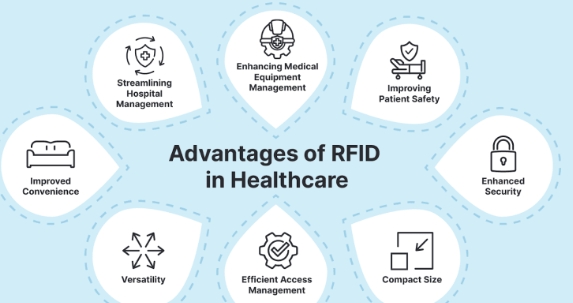Revolutionizing Healthcare: How RFID Technology is Improving Patient Care
RFID technology is transforming the way healthcare providers care for their patients. By utilizing RFID technology, hospitals and healthcare facilities are able to track and monitor patients more efficiently, ultimately leading to improved patient outcomes.
Enhanced Patient Identification
RFID technology allows healthcare providers to accurately identify patients using special RFID-enabled wristbands or cards. This ensures that the right treatments and medications are administered to the correct patients, reducing the risk of medical errors.
Streamlined Workflow
With RFID technology, healthcare providers can track the movement of patients throughout the facility in real time. This helps streamline workflow and reduce wait times, allowing for quicker and more efficient care delivery.
Inventory Management
RFID technology can also be used to track and manage medical equipment and supplies. By tagging items with RFID chips, hospitals can easily locate and monitor inventory levels, leading to cost savings and improved resource allocation.
Enhanced Security
RFID technology can improve security in healthcare facilities by tracking the movement of patients, staff, and visitors. This can help prevent unauthorized access to restricted areas and ensure the safety of patients and staff.
Improved Communication
RFID technology enables better communication among healthcare providers, allowing for seamless coordination of care and quicker response times in emergencies. This leads to enhanced patient satisfaction and overall quality of care.
In conclusion, RFID technology is revolutionizing healthcare by improving patient identification, streamlining workflow, managing inventory, enhancing security, and facilitating communication among healthcare providers. With its many benefits, RFID technology is set to continue transforming the healthcare industry and ultimately improving patient care.

